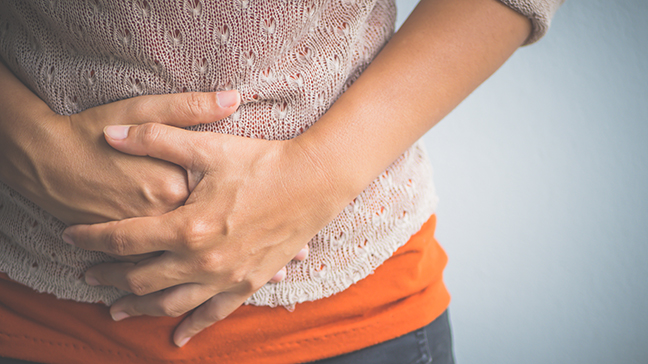- Diseases
- Acoustic Neuroma (14)
- Adrenal Gland Tumor (24)
- Anal Cancer (68)
- Anemia (2)
- Appendix Cancer (16)
- Bile Duct Cancer (26)
- Bladder Cancer (72)
- Brain Metastases (28)
- Brain Tumor (232)
- Breast Cancer (714)
- Breast Implant-Associated Anaplastic Large Cell Lymphoma (2)
- Cancer of Unknown Primary (4)
- Carcinoid Tumor (8)
- Cervical Cancer (158)
- Colon Cancer (166)
- Colorectal Cancer (116)
- Endocrine Tumor (4)
- Esophageal Cancer (44)
- Eye Cancer (36)
- Fallopian Tube Cancer (8)
- Germ Cell Tumor (4)
- Gestational Trophoblastic Disease (2)
- Head and Neck Cancer (12)
- Kidney Cancer (128)
- Leukemia (342)
- Liver Cancer (50)
- Lung Cancer (286)
- Lymphoma (278)
- Mesothelioma (14)
- Metastasis (30)
- Multiple Myeloma (100)
- Myelodysplastic Syndrome (60)
- Myeloproliferative Neoplasm (4)
- Neuroendocrine Tumors (16)
- Oral Cancer (100)
- Ovarian Cancer (172)
- Pancreatic Cancer (160)
- Parathyroid Disease (2)
- Penile Cancer (14)
- Pituitary Tumor (6)
- Prostate Cancer (146)
- Rectal Cancer (58)
- Renal Medullary Carcinoma (6)
- Salivary Gland Cancer (14)
- Sarcoma (238)
- Skin Cancer (296)
- Skull Base Tumors (56)
- Spinal Tumor (12)
- Stomach Cancer (64)
- Testicular Cancer (28)
- Throat Cancer (92)
- Thymoma (6)
- Thyroid Cancer (96)
- Tonsil Cancer (30)
- Uterine Cancer (80)
- Vaginal Cancer (16)
- Vulvar Cancer (20)
- Cancer Topic
- Adolescent and Young Adult Cancer Issues (20)
- Advance Care Planning (10)
- Biostatistics (2)
- Blood Donation (18)
- Bone Health (8)
- COVID-19 (362)
- Cancer Recurrence (120)
- Childhood Cancer Issues (120)
- Clinical Trials (630)
- Complementary Integrative Medicine (22)
- Cytogenetics (2)
- DNA Methylation (4)
- Diagnosis (232)
- Epigenetics (6)
- Fertility (62)
- Follow-up Guidelines (2)
- Health Disparities (14)
- Hereditary Cancer Syndromes (126)
- Immunology (18)
- Li-Fraumeni Syndrome (8)
- Mental Health (116)
- Molecular Diagnostics (8)
- Pain Management (62)
- Palliative Care (8)
- Pathology (10)
- Physical Therapy (18)
- Pregnancy (18)
- Prevention (914)
- Research (392)
- Second Opinion (74)
- Sexuality (16)
- Side Effects (604)
- Sleep Disorders (10)
- Stem Cell Transplantation Cellular Therapy (216)
- Support (402)
- Survivorship (320)
- Symptoms (182)
- Treatment (1786)
The latest on COVID-19’s omicron variant: What’s changed?
5 minute read | Published December 22, 2021
Medically Reviewed | Last reviewed by an MD Anderson Cancer Center medical professional on December 22, 2021
Updated Dec. 23, 2021
The omicron variant has now overtaken the delta variant in the United States as the predominant strain of the SARS-CoV-2 virus that causes COVID-19. As of Monday, Dec. 20, 2021, the Centers for Disease Control and Prevention (CDC) reported that omicron accounts for 73% of all new documented cases here.
To find out the latest on the omicron mutation, we checked in again with infectious diseases specialist and head of Internal Medicine David Tweardy, M.D.
So, what do we know about omicron now?
Earlier in December, there were three main questions:
- Is this variant more transmissible?
- Will it cause more severe disease?
- And, will our current vaccinations be effective against it?
The answer to the first question was unclear back then, because it was still too early. But now, we see omicron replacing delta and becoming more and more prominent, so the answer is looking very much like “yes.”
Just a few days ago, omicron accounted for only about 3% of all reported cases in the U.S., and the majority of infections were still largely due to delta. In only a week, that figure has jumped to 73%. So, that’s the strongest evidence yet that omicron is more transmissible than delta.
But that was actually the worst news of the three. So, don’t despair. The answers to the other two questions are more hopeful.
How so? Does omicron cause less severe disease?
Omicron still does not appear to be causing more severe disease among those infected with it, though the reasons why remain unclear. Is it because omicron is simply a less virulent pathogen? Or is this just a natural consequence of immunity, whether infection-based or from COVID-19 vaccination?
The answer is: we don’t know yet. But at this point, there’s still no evidence showing omicron causes more severe infection. Even in the United Kingdom, where omicron really exploded, they’ve only just had their first death from it.
What about the third question? Will our existing COVID-19 vaccines be effective against omicron?
This answer really makes the case for the value of COVID-19 booster shots.
Because while the neutralizing antibodies generated after initial vaccination have been substantially less effective against omicron than they’ve been against delta, the good news is that a booster shot really revs those antibody levels back up. So, boosters still confer good protection.
We will certainly see some fully vaccinated people get breakthrough infections, but the good news is that the vaccines are still doing their job of preventing severe illness that may require hospitalization.
Why are booster shots important?
The protection offered by a booster shot is two-fold. First, it will make you less likely to be infected by omicron. And second, it will make you less likely to develop severe disease or die from it if you do contract it.
One thing many people may not understand is that there’s a difference between “infection” and “disease.” You can be “infected” with something, but still not develop “disease,” because your body neutralizes it before it can actually make you sick.
The protection conferred by a COVID-19 booster may allow your body to neutralize the coronavirus during the first wave of its infectious process, while it’s still in your nasopharyngeal tract. So, you might not actually become ill, or even notice anything going on. That’s why I tell people to get a booster shot as quickly as they can, as soon as they become eligible for it.
While low levels of neutralizing antibodies can protect you against serious disease, high levels of antibodies can protect you against both infection and disease. So, that’s a very important distinction to make.
What else can I do to protect myself against omicron?
In addition to getting vaccinated if you’re not already or getting a booster shot if you’re eligible, it’s important to continue masking and physical distancing, and staying home and getting tested if you feel sick.
If you’re outdoors, you don’t need to wear a mask unless you’re in a crowded area, an area of high transmission, or someplace you can’t maintain social distancing.
What should I do if I get a COVID-19 infection?
If you’re showing symptoms of a COVID-19 infection, get tested and isolate yourself until you learn the results. If the test is positive, follow the CDC’s guidelines for self-care.
If you’ve been exposed to someone with COVID-19, but don’t have any symptoms, get tested for COVID-19 since you may still have been infected.
The two antivirals developed for COVID-19 have just been been granted emergency use authorization by the Food and Drug Administration (FDA) and should become available for eligible patients soon.
Any new guidance for cancer patients or immunocompromised individuals?
No. Not really. Just get your third dose as soon as possible, if you haven’t already done so. And talk to your care team about the best time to do it.
Anything else for people to know right now about omicron?
One thing I find somewhat hopeful is that omicron appears to be evolving in the same direction as those viruses that cause the common cold.
It’s very early on, of course, so it’s too soon to say that for sure. But the natural history of any new pathogen is that it tends to evolve so as not to be so severe, because it wants to persist forever. And some very smart people are making these observations right now, based on the data available to them.
The evolutionary process has likely been accelerated a little by the vaccine. But about five different coronaviruses cause the common cold right now. So, it’s at least possible that the coronavirus could end up as more of an aggravation than an existential threat.
Schedule a COVID-19 vaccine or booster appointment at MD Anderson. Appointments are open to patients, caregivers and the general public.

This really makes the case for the value of booster shots.
David Tweardy, M.D.
Physician





